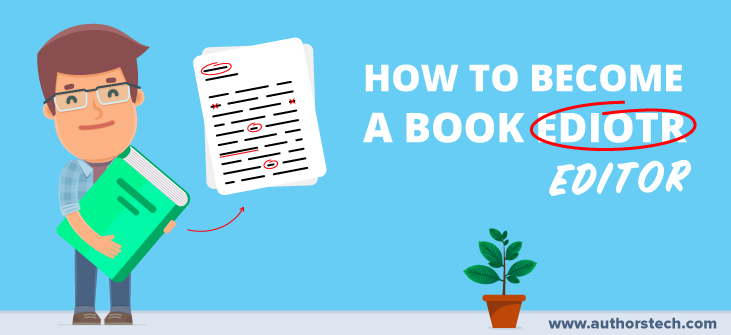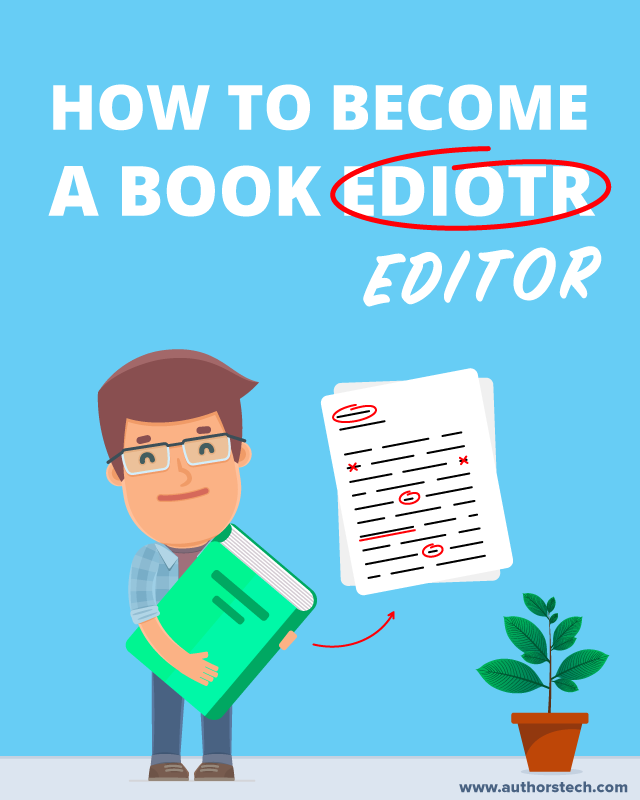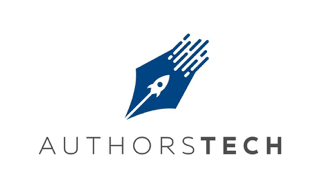
If you're a writer and a lover of books, at some point you may have thought about combining your two loves and becoming a book editor. This is a very good career choice with a lot of different options available to you.
Many published authors also become book editors because they’ve written enough books to know what a good book requires.
But before we can tell you how to become a book editor, there are five assessment questions we recommend you answer honestly for yourself first.
Those five questions are:
Do I have the skills to be a book editor? Or do I need to learn them?
Being an editor is not as easy of a job as you think it is. There’s a lot you have to know, from grammar, punctuation and proper spelling to the craft of fictional storytelling and/or the craft of nonfiction self-help and memoir.
Most writers are naturally good at grammar, spelling and punctuation, so this may be something you feel very comfortable with. Not to mention there are tools that can help you out, such as Grammarly, ProWritingAid and/or the spell-check on your word processing software.
But it’s the craft-related stuff where you may need to do some learning.
For example, there’s a lot involved with writing a fictional story. You must have an understanding of things like genre requirements, story structure, character arc, dramatic tension and conflict, theme, concept, plot and more.
If you don’t already have a workable understanding of the elements of novel-writing, self-help or memoir craft, you’ll want to spend time learning about, studying and practicing this stuff before you attempt to edit a book for someone else.
Assessment #1
Do I currently have the skills to be a book editor? If not, what do I need to spend time learning right now so that I will have the skills?
Will I edit nonfiction books? Novels? Or both?
As we mentioned above, there’s a lot you need to know about fictional storytelling, self-help and memoir craft if you want to be a book editor. So it’s a good idea to think about whether you want to edit novels (fiction) or self-help books and/or memoirs (nonfiction).
Not every editor edits fiction and nonfiction books. Some editors focus on fiction over nonfiction or choose to only work with writers who write memoir or self-help. Specialising also helps you stand out to potential clients.
It’s totally up to you what type of books you want to edit. We recommend you really think about the type of books you love to read, as that will usually translate to a fulfilling type of book to edit as well.
Assessment #2
Do I want to edit novels (fiction)? Self-help books and/or memoir (nonfiction)? Or both?
Do I want to be a Developmental Book Editor or a Line Editor/Proofreader? Or both?
Yes, there’s a difference. A big one. So this is a good question to answer for yourself as well.
Here’s a quick breakdown of what each type of editor is and does:
- A Developmental Editor is focused on the book as a whole.
This is the big-picture type of editor who gives feedback on the overall story/book, including what’s working, what’s not, why it’s not and how to fix it. This type of editor does not typically give feedback on things like grammar, punctuation and spelling. - A Line Editor/Proofreader is focused on the actual words of a book.
This is the details editor who gives specific line-by-line suggestions for what to change to make the words sound better, as well as how to fix any grammar, punctuation or style errors. This type of editor does not typically give feedback on the actual story/overall book itself.
Assessment #3
Do I want to be a Developmental Book Editor and give feedback on the big-picture? Or do I want to be a Line Editor and give specific line-by-line changes to make to the book? Or do I want to do both?
Do I want to work for someone else or for myself?
As we mentioned in the beginning of this article, there are many options available for being a book editor. One of those options is whether you want to work for someone else or work for yourself.
If you want to work for someone else, such as a publishing house or agency, you’ll most likely need to get a college degree. If you want to work for yourself, a degree isn’t necessary as you can be self-taught and/or hire a mentor who can help you learn what you need to know.
Here are some pros and cons for both options:
Working for Yourself as a Book Editor
Pros
Cons
Working for someone else as a book editor:
Pros
Cons
Choosing which option you prefer isn’t an easy decision, so be sure to really spend some time considering the pros and cons and which option best fits you and the lifestyle you desire for yourself and your family.
Assessment #4
Do I want to work as a book editor for someone else? Or for myself?
Are you walking your talk?
This is an important one. If you want to be a book editor, you need to be walking your talk. That means you’re not just a book editor, you’re also a published author or, at the very least, you’re someone who reads a lot.
If you don’t write your own books or at least read a ton of books, it’s out of integrity to try and tell someone what they should be doing with their book.
Whether you work for yourself or someone else, you should always be walking your talk.
Assessment #5
Do I write and publish my own books? Or, if not, do I read a lot of books in my own time?
Now that you’ve done a pre-assessment to know whether or not being a book editor is a good fit for you, we can move forward with telling you how to become a book editor.
We’ve broken all of the steps down into two categories:
1.How to become a book editor and work for a publishing house or agency
2.How to become a book editor and work for yourself
How To Become A Book Editor For A Publishing House Or Agency
Step One: Go to college
Most publishing houses and agencies require employees to have a college degree. If you know before you go to college that you want to be a book editor, we recommend choosing a major that relates to writing.
Common majors for book editors include: English, Communications and Journalism.
If you already have a college degree, you can skip down to Step Two below.
Step Two: Get as much editing experience as you can
While you’re earning your degree (or even after), gain as much editing experience as you can. This could mean working at your campus newspaper or literary magazine (or maybe both), getting an editing-related internship or even working at the local newspaper.
If you’re already out of college, you can always get some experience by finding writers who need help with their books and offering to be their editor, or applying for any freelance editing gigs you can find.
Step Three: Familiarize yourself with the most popular editing style books
The two most common editing styles are:
•Associated Press (AP) Style
•Chicago Manual of Style
AP Style is mostly used in media-related writing, such as newspapers, magazines and blogs, but can also apply to certain types of nonfiction books as well. Chicago Manual of Style is mostly used for self-help books, memoirs and other nonfiction books.
You’ll also want to get yourself a copy of Strunk and White’s “The Elements of Style” and get familiar with proper grammar and punctuation.
If you’re going to be a Line Editor, being familiar with these styles will help you immensely.
Step Four: Start applying for editing jobs
This step is pretty self-explanatory: start putting in applications for editing jobs when you find them.
You may not be able to step into book editing right away, but if you can get any kind of editing job, you’ll have leverage to move up from there. Many book editors first start off as newspaper or magazine editors before moving over to books.
You can also use freelance job sites to find editing gigs. While it may not be a full-time job right now, it could be a stepping stone to one later on.
Step Five: Network and build relationships
If you want to be a book editor for a publishing house or agency, you’ll want to be as connected in the publishing industry as possible. That means spending an hour sprucing up your LinkedIn account, and then connecting with people in the industry on there wouldn’t be the worst use of your time.
The more people you can connect with in the publishing industry, the better your chances are of being in the right place at the right time when an editing job does come available. Be persistent and keep at it.

How To Become A Book Editor and Work For Yourself
Step One: Get as much editing experience as you can
Since you’re going to be working for yourself, you can skip the college degree part, but you are still going to want to get as much editing experience as you can. The two best ways to do that are:
•Freelance editing—apply for freelance editing gigs and then do a really good job
•Find writers who need an editor, but can’t afford one—offer to edit a book or two for free for a couple of writers in exchange for a testimonial about your work
The more editing experience you can get prior to hanging your hat as a book editor the better. At the very least, you should be walking your talk and writing and publishing your own books.
Whatever you can do to provide social proof of why a writer should work with you as an editor counts as experience.
Step Two: Hang your hat as a book editor
Once you have some book editing experience, it’s time to launch yourself into the world and begin offering your editing services. You can do this very simply, by having your own website where potential book editing clients can come to check out your services, testimonials and contact you for more information.
You don’t even need an entire website. You can get away with a landing page or even a Facebook page that has a video and some copy about your services on it, plus a way to contact you.
Keep it simple, especially in the beginning. Don’t spend a lot of money until you’re to a place where you’re actually making money.
You don’t need anything fancy. You just need a way for people to learn more about you and what you offer, and have a way to contact you.
Step Three: Shout from the rooftops that you’re a book editor
Once you’re officially in business offering your book editing services, your biggest focus should be on telling everyone and their dog that you’re a book editor. This means marketing.
You have to put yourself out there and market your services so that you can get clients. In the beginning the best—and most affordable—way to do this is through word-of-mouth.
Here are some ways you can do that:
•Edit a book for someone and ask them to tell their writer-friends about you
•Offer free editing services in exchange for a testimonial you can put on your website and use to get paying clients
•Start a book-editing Facebook group, share tons of valuable content and tips for free and then offer your services up as a call-to-action for anyone who’s ready to hire an editor
There are a million different ways to market yourself and your book-editing business, so get creative and do whatever feels best for you.
Step Four: Collect Testimonials, network and be of service; repeat daily
When you work for yourself, you have to get your own book editing clients. The best way to do that, as we mentioned, is word-of-mouth from people who’ve already worked with you as a client.
In addition to that, you should also be networking with writers, authors and people in the publishing industry, and being of service to your community in whatever way you can.
For example, maybe you have “Free Tip Fridays” in your Facebook group and every Friday you share a really killer editing tip to help your group members edit their books and then end with a call-to-action to hire you. This allows you to be of service, showcase your skills as an editor and potentially acquire new clients in the process.
Repeat these activities every single day.
Becoming a book editor isn’t for the faint of heart, especially if you plan on working for yourself. But if you’re willing to put in the effort and time, you can definitely use your writing and editing skills to become a successful book editor who gets to spend their time doing something they love for work (and how many people get to do that?).
